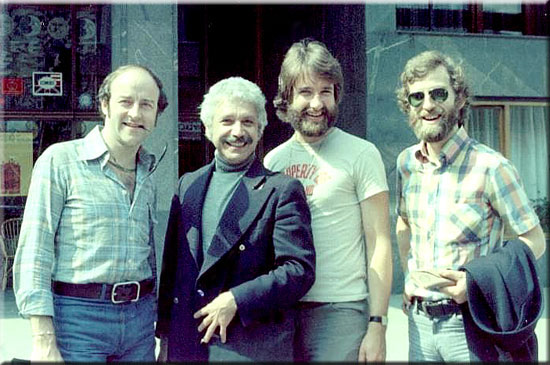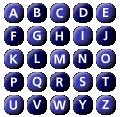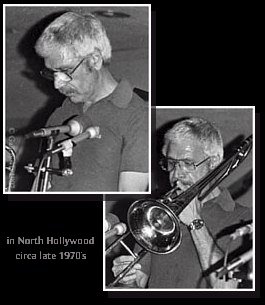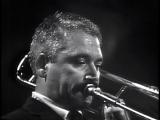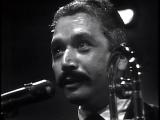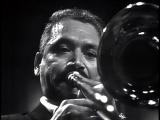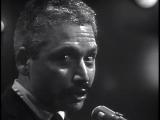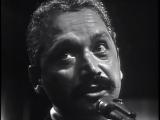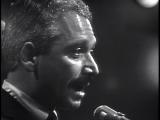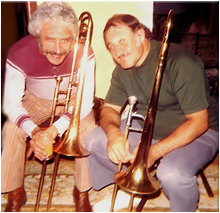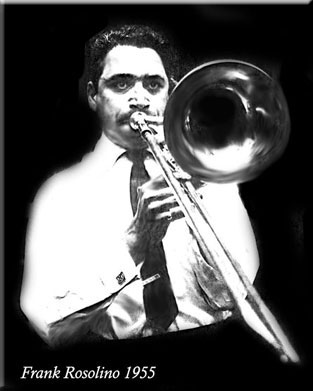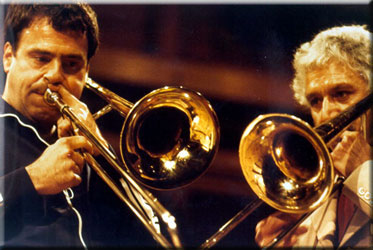|
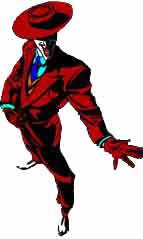 THE JOKER: .FRANK ROSOLINO THE JOKER: .FRANK ROSOLINO
What happened in November 26, 1978?
THERE ARE THOSE, the fine saxophonist Don Menza among them, who long afterwards found it all but impossible to talk about what happened in those early hours of November 26, 1978. By one of those bits of mental prestidigitation with which we protects our sanity, we all succeeded in not even thinking about it. We pushed the event into some closet in a back room of the mind, and then we all shut the door.
..I
cannot to this day explain, and neither can the Van Nuys
homicide detectives, why it happened. I'll tell you, as I
told them, what I know.
..Frank
Rosolino was among the best-loved men in jazz. One of
the finest trombone players in the history of the instrument,
he had a superb tone, astonishing facility, a deep Italianate
lyricism, and rich invention. Frank was, very simply, a sensational
player. In addition he had a wonderful spirit that always
communicated itself to his associates on the bandstand or
the record date.
..He
was one of the funniest of men, with a wit that literally
would not quit. He bubbled. Quincy Jones remembered
touring Japan with a group that included Frank and drummer
Grady Tate. "With those two," Quincy said,
"you can imagine what it was like. The band was always
in an uproar."
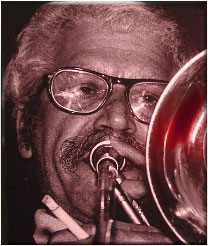
.Frank
3 months before he died (1978)
..Frank
was one of a number--Donald Byrd was another--of fine
jazz musicians to come out of Cass Tech in Detroit,
a superior high school which drew its students from all over
the city. Only the exceptional could even get into it. Frank
always had the air of a mischievous kid looking for some hell
to raise or trouble to get into, and this trait had emerged
by the time he went to Cass Tech. Giggling in that
way of his, he would in later years recall swiping cars for
joyrides. It was always a serious mistake to get into a poker
game with Frank. He was one of those men who, but for a soaring
and compelling musical talent, might well have ended up in
jail.
..Like
everyone who knew him, I remember vividly the last times I
saw Frank. We were at Dick Gibson's party in Colorado,
one of those events that sprung up in recent years in which
aging rich jazz fans invite brilliant musicians to come and
play for them. At one point he played with Carl Fontana
and Bill Watrous, and the three-trombone music was
gorgeous. In another unforgettable set, Clark Terry
and Frank did several scat-singing duets. They kept making
each other laugh, and afterwards I urged them to record together,
not playing so much as scatting. Frank was one of the few
people who could scat on the same bandstand with Clark
Terry.
..The
main events of the long weekend were held in the Broadmoor
Hotel in Colorado Springs, noted for exciting scenery, dull
food, and sullen service. After the last performance at the
Broadmoor, we all traveled by bus back to Dick Gibson's
house in Denver, Frank and the girl he was living with, Diane,
were in the seat behind my wife and me.
..We
did not know it at the time, but Frank's third wife, the mother
of his two sons, had gone into their garage, shut the door,
turned on the car's engine, and sat there in the fumes until
she died. I do not know her motive. Frank, in the seat behind
us, was talking about following her, killing himself and taking
the two boys with him, since he could not bear the thought
of leaving them behind in this world. Were we hearing him
correctly? Diane said, "Don't talk that way, Frank. Let's
pray together."
..That
evening in Denver there was a final informal party at Gibson's
house. Frank seemed cheerful, making my wife and me doubt
the accuracy of our hearing in the noise of the bus. She and
I leave early to get back to Los Angeles. So did Frank, who
had a gig the next morning. We took a cab to the airport together.
Frank was as funny as always. The conversation overheard on
the bus seemed like the morning memory of a nightmare.
..We
were told at the airport that the flight would be boarding
late. My wife and Frank and I wandered around with little
to do. Frank shattered the impersonal tedium that hangs in
the atmosphere of all airports: he had us laughing so hard
that a salesgirl in the bookshop, watching us with suspicion,
pointed us out to a security guard, who kept an eye on us.
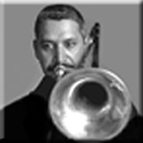
..Part
of it was Frank's delivery. It has been said that a comic
says funny things and a comedian says things funny. Frank
was both. He had a lazy low-key way of talking, the epitome
of cool, that was either the archetype or the mockery of the
classic bebop musician. You never knew who Frank was putting
on, the world or himself. Or both. And he had a loose-jointed
rag-doll ah-the-hell-with-it way of walking. Frank could even
more humorously. He seemed to relish the idea of the bebopper,
even as he made fun of it.
..Having
exhausted the airport's opportunities for amusement, we went
into its coffee shop. It had a U-shaped counter and a terrazzo
floor that someone had just mopped with a hideous disinfectant.
The air was full of flies, drifting back and forth in lazy
curves. We slid onto stools. A waitress about thirty years
old approached us. Frank said in that unruffled-by-anything
drawl of his, "I'll have a bowl of those flies,
please."
..With
unexpected sang-froid, the waitress tossed the ball right
back at him. "We only serve them on Thursdays," she said.
.."Then
I'll come back Thursday," Frank said, and we all laughed,
including the waitress.
..Finally,
late, we were told that we could board the plane, a TWA flight
on stopover between Chicago and Los Angeles. On the plane,
returning from an engagement, was, to our delighted surprise,
Sarah Vaughan. Red Callender, the bassist, and
his wife were also with us. We all sat together and talked,
waiting for the take-off. The pilot's disembodied voice told
us that there was fog in Los Angeles and the flight would
be further delayed. Frank got funnier, Sass got helpless with
laughter. Frank asked a pretty stewardess if we could have
drinks. She said it was against regulations for her to serve
them before takeoff. But Frank soon had her laughing too,
and she left to get us the drinks. Frank said, "I have
to be careful. I wouldn't want her to lose her gig over it,
'cause then I might have to marry her."
..At
last the plane took off. Sass wanted to sleep but Frank kept
up his jokes, and she said, "Frank, stop it!" Finally, shaking her head, she moved further back in the plane
to escape him.
..At
last weariness overcame him, and Frank too fell asleep, sprawled
across two or three seats of the nearly empty aircraft.
..I
awoke in daylight to the sound of the pilot's voice telling
us to fasten seat belts for the descent into Los Angeles.
I peered around the back of the seat ahead of me and saw that
Frank was still asleep. By this time in his life, his thick
dark curly hair had become almost white and he had a full
iron-gray mustache. And yet, asleep, he looked like that boy
at Cass Tech, trying to find a little action. I shook his
shoulder and said, "Frank, Wake up, we're home.
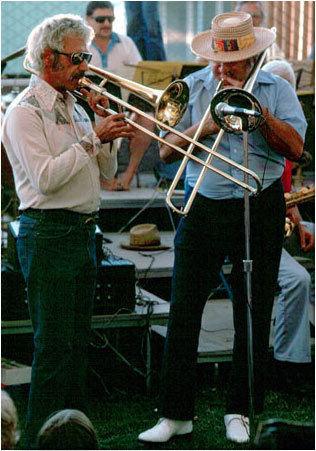 |
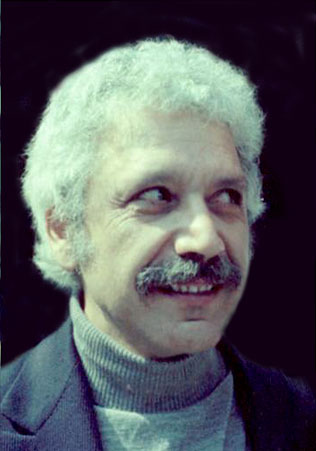 |
| Frank Rosolino with Carl Fontana (photo Dennis Dotson) |
Frank
Rosolino in Germany 1975 (photo Eddie Engels) |
I
turned on the television that morning to watch the news, then
drifted back into that soft state between sleeping and waking.
Then there was a voice saying, "The internationally
celebrated jazz trombonist Frank Rosolino took his own life
last night." Police in the Van Nuys division
say that Frank Rosolino shot his two small sons and
then turned the gun on himself. One of the children is dead,
the other is in critical condition, undergoing surgery. Frank
Rosolino, who became nationally known with the bands of
Gene Krupa and Stan Kenton,
was... "
.."No!" I shouted, waking my wife. She asked what had happened. I
told her. She burst into tears. We remembered his words on
the bus.
..I
got up and, after staring at the floor for a while, telephoned
the Van Nuys police and asked first for homicide, then
for whomever was handling the Frank Rosolino "case." After a while a man took up the telephone and gave me his
name. I gave him mine and asked if he could tell me any more
than I had heard on the news.
.."Did
you know him, sir?" he asked.
.."Yes,
I did."
.."Then
perhaps, you can help us." he said. "We're
just puzzled."
.."So
am I," I said. "But not totally surprised." I told him about the bus trip to Colorado.
.."Is
it possible that drugs were involved?" the detective
asked carefully.
.."I
don't know," I said. "Although nowadays, you always
wonder that." I told him what kind of person Frank was,
how loved he was. But even as I said it I questioned how well
any of us had really know him. I had realized there was a
dark side of Frank but had never dreamed that it was this
dark. And, as Roger Kellaway said later. When somebody
cracks four jokes a minute, we all should have known there
was something wrong."
..The
conversation with the detective at last ended, as unsatisfying
to him as it was to me.
..In
the course of that day and the next I learned a little more.
Diane (the girl Frank was living with) had wanted to
go to Donte's to hear Bill Watrous. Donte's
is a nightclub in North Hollywood, a hangout for musicians
and one of the few places in Los Angeles where the best studio
players can go to play jazz and remind themselves why they
took up instruments in the first place. Frank said he wanted
to stay home with his two boys: Jason, who was then
seven, and Justin, nine.
..I
met those boys once, at a party at the home of Sergio Mendes.
They were full of laughter and energy and mischief, like Frank.
They were wonderfully handsome and happy little fellows, scampering
like puppies amid the hors d'oeuvres and among the legs of
people, having a high old time.
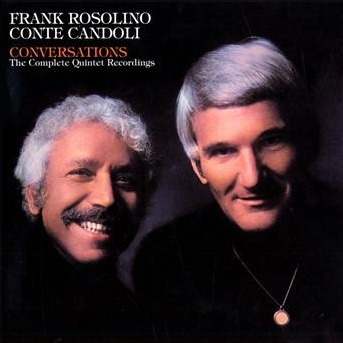 |
|
..Diane
went to Donte's with a visiting girlfriend. They came
home toward four o'clock in the morning and were sitting in
the car in the driveway when they saw a flash of light in
the boy's bedroom. Thinking the boys were awake, they got
out and went into the house. As they entered they heard the
last shot, the one Frank put into his brain. He was still
alive. I do not know and do not want to know the further details.
In any case, he soon died.
..Frank
had gone to the bedroom where Jason and Justin
were sleeping and shot each of them in the head. Justin was
dead. Jason was not. That night and long into the next
day he underwent surgery--fourteen hours of it.
..The
autopsy deepened the mystery. The coroner's report said that
there were no significant amounts of alcohol or drugs in Frank's
system.
..A
service was organized or Frank's friends. His two brothers,
Russell and Gasper Rosolino, had flown out from Detroit
to take Frank and Justin back with them for burial. I do not
remember the name of the funeral home, but I can see its polite
and muted decor. A lot of us, including Don Menza,
Shelly Manne, and Conte and Pete Candoli, were
standing around in little groups in the lobby, watching our
friends arrive. It seemed everyone in town was there. I don't
think any man ever had fewer enemies and more friends than
Frank Rosolino. J.J. Johnson and Herb Ellis
came in together; I can still see their bleak faces. Med
Flory said, "Well, Frank sure took care of Christmas
for all of us."
..Finally,
because it seemed the thing to do, I wandered into the chapel.
The two coffins were in the expected place at the front of
it. Roger Kellaway and I walked apprehensively toward
them. The cosmeticians had done well. Beautiful little Justin
truly did look as if were merely sleeping on the velvet cushion.
Frank too looked asleep, as I had seen him on the plane over
Los Angeles.
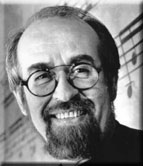
Roger Kellaway
..Roger
Kellaway said something softly as he looked at Justin.
Later he told me it was a prayer. Then he looked down at Frank
and said, "You asshole," expressing the strange
compound of love and grief and anger we were all feeling toward
Frank.
..I
couldn't face sitting through a service. What was there to
say? Roger and I headed for a nearby tavern and had a couple
so Scotches. For, as Roger put it, "I've had friends
who killed themselves before, but I've never had one who killed
his kid." He stared into his drink. The bar was lit softly.
The upholstery was red. He said, "You can make that decision
for yourself, but you have no right to make it for anyone
else." After a time we went back to the chapel. The service,
which had been short, was over, and our friends were standing
quietly in the lobby.
..Later
there as a wake at Don Menza's house in North Hollywood.
Menza and I talked for a while about Verdi. And about Frank.
..Frank
had fought his share of the jazz wars. He had been through
financial hard times and lived to see himself and other musicians
of brilliance and in some cases genius struggling to pay their
telephone bills, while grungy illiterate singers rode around
in limousines, with expensive whores, and demolished hotel
rooms and recording studios and told their underlings to put
it on the bill. He had even lived to see their likes earnestly
analyzed as artists in the New York Times and the Los
Angeles Times and Rolling Stone and Newsweek.
..But
things had been improving for him, Menza told me, including
Frank's financial situation. Frank had wanted to play more
jazz, and he was doing it. Don said that he and Frank had
been scheduled to make an album, and there was more work of
that kind on Frank's calendar. He and Frank had been very
close.
..Med
Flory was right. Christmas was dreary that year.
At first we heard that Jason would be both deaf and blind.
For a long time he was in coma. We heard that he would come
out of it and scream and then lapse back into unconsciousness.
You found yourself thinking some strange thoughts. What would
happen to him if he should indeed be both blind and deaf?
What communication would he have with the world? Would he
be a vegetable? Or, worse, would he be a sentient conscious
being trapped in a black silence with memories of sight and
sounds and never knowing why and how they had suddenly ceased?
Had he been the second one shot? Had he seen his brother killed?
..After
a while we heard that Jason could hear. He was living by now
with relatives of his mother. Gradually I stopped thinking
about him. And about Frank. Every once in a while, though,
something would happen to remind me.
..Roger
Kellaway and I were on our way to an appointment in Tarzana,
an area of Los Angeles at the west end of the San Fernando
Valley. We saw a little boy, about three, crying in the street.
We stopped the car. The boy was lost. Roger and I decided
that he would go on to our appointment while I tried to learn
where the boy belonged. I asked passing people if they knew
the child. Gradually a crowd gathered. A tall handsome man
in his late fifties introduced himself. He was a cop, a lieutenant.
He lived in a nearby building. We went up to his apartment,
where he gave the boy something to eat. The child stopped
crying. The man picked up the phone, dialed, and identified
himself. He was head of the Van Nuys homicide division.
..While
we waited for a police car--which in due course did find the
boy's home--I asked the lieutenant if he had handled the "Rosolino
case." He said that two of his men had. I found myself
going over it all again. So did the lieutenant.
..He
told me that in his line of work one inevitably becomes inured,
but the two detectives who had gone to Frank Rosolino's house
that night had come back to the office in tears.
.."Yeah,"
I said. "They were beautiful little boys."
..After
that I banished Frank from my thoughts. I never listened to
his records.
..But
Jason Rosolino didn't cease to be. He was adopted by
a cousin of his mother, Claudia Eien, and her husband,
Gary. Caring for him exhausted the family's resources,
emotional, physical, and financial. Jason was sent to Braille
school, but he was suffering from psychological problems.
Surprised? "But he's beautiful," Don Menza's
wife, Rose, said. "He's smart as a whip. He has
all Frank's fire and energy." He was also, she said,
very musical. He had tried trumpet and trombone and piano,
but he had no patience.
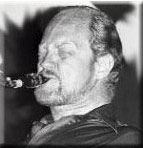
Don Menza
..Five
year passed. The strain on Claudia and Gary of caring for
him had proved enormous. Don and Rose Menza and other
musicians and their wives planned a concert to help Jason
and some other people in need. It ran from 5:00 p.m. to midnight
on the evening of October 30, 1983, at the Hollywood Palladium,
a grand old ballroom from the 1930s filled with the ghosts
of vanished bands. It seemed everyone was there: the big bands
of Bill Berry and Don Menza, Supersax,
Steve Allen, Jack Lemmon, Shelly Manne,
Ernie Andrews, the Tonight Show band...
..And
Jason. He was there with his adoptive parents
and a young psychologist who had been working with him. At
first I stayed away from them. A lot of people did. Finally
my wife said, "We can't all ignore him."
..I
thought, What is it? Am I afraid of a twelve-year-old boy?
Or am I afraid of seeming to manifest a morbid curiosity?
Or are you, I said to myself, afraid that you
can't handle what he has been through?
.."Go
and talk to him," my wife said.
.."You
go and talk to him!" I answered. But in the end I did
it. Very timidly, I introduced myself to the Eien family,
and soon found myself caught up in conversation. My wife then
joined us.
.."I
used to know you a long time ago, Jason," I said.
.."Before
I was seven?"
.."Yes,"
I said. "Before you were seven."
He was a handsome boy, tall, dark, and strongly muscled. There
was a scar on his temple but it was not all that conspicuous.
The eyes were in deep shadows, unseeing. The bullet destroyed
the optic nerve but it did not touch the centers of intelligence.
The psychologist told me Jason had a genius I.Q. And you could
see, as you watched him listen to the music, that he had elephant
ears.
..An
uncanny thing happened then--two uncanny things. He touched
my wife's hair. Not her face, just her hair. He said, "I
know what you look like."
.."And
what do I look like?"
..He
gave a wolf whistle, then said, "You have blonde hair
and a full mouth." All of it accurate.
..I
was not too severely unnerved by that. Dave MacKay,
the pianist, is also blind. I have known Dave, at a social
affair, to describe the color of a sweater worn by someone
just entering the room. And Dave has a remarkable ability
to fathom character merely from the sound of a voice.
.."How
do you know that?" I asked Jason.
.."From
her voice," Jason said.
..But
the next one was even stranger. My wife mentioned a friend
in Santa Barbara who grew flowers. Jason said he knew what
the man looked like. He said the man was tall and fair-headed.
This was accurate. But how many tall sandy-haired Japanese
have you met?
..Don
Menza's band was performing. "Who's playing the trumpet
solo?" Jason asked me.
.."Chuck
Findley," I said, and then thought, Why misinform him? "Actually,
it is not a trumpet, it is a fluegelhorn."
.."What's
the difference?"
.."It's
a somewhat bigger instrument, it plays in a slightly lower
register, and it has a darker sound."
.."What
do you mean by darker?"
..That
stopped me. One of those moments when you realize that music
cannot be described. And in the attempt we usually resort
to visual analogies, which did not seem appropriate in the
present instance. "It's fatter, it's thicker somehow," I said.
..Then
Bill Berry played a solo. "That's a trumpet in
a harmon mute," I told Jason, and explained the use of
mutes.
.."It
sounds a little like a saxophone," Jason said. And not
many orchestrators have noticed that resemblance.
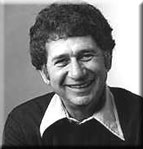
Shelly Manne
..Shelly
Manne was playing with Don Menza's band. Two weeks
earlier Shelly had been hurt in an encounter with a horse
on his ranch and one leg was immobilized by a cast. This meant
he was working without a high hat. I explained this to Jason. "What's a high hat?" he said.
..Give
me your hands," I said, and put them palm to palm horizontally.
I slapped them together on the second and fourth beats of
the music. "Two cymbals facing each other, like that.
You work them with a foot pedal."
.."Oh,
yes, I know," Jason said. "I used to play drums."
..We
listened to the music for a time. "I think a lot of people
are trying to help you, Jason," I said
.."A
lot of people in this room love you."
.."Why?"
.."Just
because. Take my word for it," I said.
.."Do
you know who really loves me?"
.."Who?"
.."God
loves me," he said.
-----------------------------------------------------------
(From the book: "Meet Me At Jim & Andy's" by Gene Lees)
-published by the Oxford University Press
The book has an introduction by Don DeMichael, and has chapters
on:
Duke Ellington, Artie Shaw, Woody Herman, Frank Rosolino,
John Heard,
Bill Evans (excellent chapter), Billy Taylor, Art Farmer.
and a great chapter
on Paul Desmond. It also tells about "Junior's" and has a good chapter called,
"The Myth." ~ GREAT BOOK ! Rene Laanen
|
